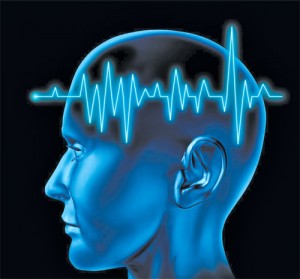A Real Brain-Changer
Need some relief? Through a new field of design called “neuro-architecture,” you can create a comfortable, safe environment within the walls of your home, office
QUESTION OF THE WEEK: We spoke briefly at an event some time ago, and you mentioned a field that I had never heard of before and how it correlated to feng shui. I can’t remember what it was called, but I remember what you said was fascinating. Would you mind recapping some of the main points? I think it would be interesting for regular readers of this column.
We talked about a field of design called “neuro-architecture,” which correlates closely with feng shui.
In a nutshell, neuro-architecture, a blend of science and art, is the study of how architecture affects the human experience. In the past few years, neurological research, measuring every feature of the architectural environment, shows that factors such as light, space and room layout affect physical and psychological well-being in areas such as stress, emotion, memory and more.
The influence of light
Candles, incandescent lights or sunshine can instantly make a difference on mood. Neuro-architecture gauges this with monitors that measure brain waves and activity. From this data, neuro-architects can suggest how to make home improvements that positively affect your brain, and in turn, your mood and behavior.
Your decor needs “to feed you”
Even though good feng shui is associated with a clutter-free environment, it consistently maintains that the things in your home should have personal meaning. While at first glance minimalist interiors like those in interior design magazines may seem favorable, in actuality, they are not supportive of your energy. Neuro-architecture reinforces this premise by showing that a home filled with personal objects feeds the brain in a positive way.
In one of the tests done on Alzheimer patients, visual cues in the environment, such as familiar images and objects, were found to help patients walk with a greater sense of purpose, minimizing the tendency to wander. In the same way, when you can look around your home and see evidence of who you are in books, projects and personal items, your brain receives grounding signals.
“Hugs” in the environment
When setting up a room at a feng shui consultation, I strive to create “hugs” by rounding out the corners of the room — angling furniture, placing a plant or positioning a lamp in the corners — and making people in the room feel more nurtured. I also suggest using round or oval tables to balance the abundance of straight edges in the room.
Neuro-architecture also suggests using curves, inasmuch as they help to nurture contentment and well-being based on the softening of your peripheral vision and the response of the amygdala — a part of the brain that controls memory and emotions.
Findings clearly show that sharpness in the environment stimulates a mild fear reaction in the brain.
When people walk down a dark narrow tunnel lined with sharp rocks they think only of avoiding getting hurt; but when the same tunnel is lined with soft upholstery, they feel safe enough to relax and daydream.
The Power Position
A main feng shui concept has to do with positioning. Situating yourself so that you can see all the activity in the room is considered a de-stressor. In the kitchen, the same concept is used, suggesting that it is preferable to cook at a stove where you can see the activity around you. In those homes where the stove faces a wall, a common feng shui “cure” is to place a mirror above the stove to see the activity behind you.
Neuro-architecture studies show that the “sweet spot” for the stove is a location where you can cook while looking at others in the room (like on a kitchen island). Studies show that when you are at the stove with your back to the noise and activity your brain is more likely to produce adrenaline and cortisol, hormones associated with anxiety, fear and stress.
However, when you are facing the heart of the room and can see what is going on, you feel safer and more in control, as evidenced by the greater release of oxytocin and serotonin, hormones associated with relaxation and enjoyment.
Having your own space
Neuro-architecture clearly shows through EEG monitoring (a machine that measures electrical activity in the brain) that a lack of privacy is stressful. Experts say that even if you cannot have your own room, finding ways to guarantee that you have solitude is important. Suggestions include designating a time when the bathroom is yours or finding an area of the home where no one will disturb you.
Windows, yards, balconies and images
For an emotional lift, having a yard is nice, but if you live in a condominium, having big windows or a balcony is the next best thing. Knowing what is outside helps you feel more in control, leading to greater relaxation and diminished stress.
Windowless rooms with artwork of large peaceful images that could take the place of windows were shown to have a markedly greater calming effect on the people in the room than the same rooms without such artwork.
Alice Inoue is a life guide at Alice Inoue Life Guidance LLC, a company committed to assisting people in living empowered lives. Alice shares her wisdom as a professional speaker and personal consultant, and offers a series of instructional DVDs on feng shui, as well as her award-winning books on feng shui, happiness and spiritual life wisdom. Visit www.aliceinspired.com to read her blog, sign up for her newsletters and download useful feng shui tips.
